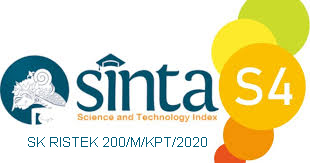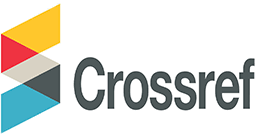Naive Bayes and Support Vector Machine Algorithm for Sentiment Analysis Opensea Mobile Application Users in Indonesia
Abstract
Opensea is an NFT buying and selling application-based platform that is booming in the community. One way to find out the public's perception of the Opensea application is by sentiment analysis, as done in this study. Data that is used is user review data for the Opensea application in the Indonesian play store. The sentiment analysis technique used is the Naïve Bayes Classifier and the Support Vector Machine (SVM) method. Both are used to compare public responses from sentiment analysis of reviewed data labeled as positive, negative, and neutral. Based on this study, it was found that the Naive Bayes algorithm gives the results that class precision is 87.31%, class recall is 71.02%, and accuracy is 89.81%. While the SVM algorithm gives the results that class precision is 94.23%, class recall 71.96%, and Accuracy 90.78%. It is concluded that the SVM algorithm has a better performance than the Naive Bayes algorithm.
Keywords
Full Text:
PDFReferences
Natasya Salim, “Minat Terhadap NFT Bertambah Sejak Nama Ghozali Viral, Pakar Serukan Adanya Regulasi,” 2022. https://www.abc.net.au/indonesian/2022-01-19/minat-nft-di-indonesia-meningkat-tapi-waspadai-risiko-kejahatan/100765112.
Mohamed-amine et all, “How should metaverse augment humans with disabilities ?,” in 13th Augmented Human International Conference Proceedings, 2022, p. 9, [Online]. Available: https://archive-ouverte.unige.ch/unige:160466.
DeepRadar, “NFT MarketPlace Ranking,” 2022. https://dappradar.com/nft/marketplaces (accessed Jul. 11, 2022).
B. White, Characterizing the OpenSea NFT Marketplace, vol. 1, no. 1. Association for Computing Machinery, 2021.
S. A. Aaputra, “Sentiment Analysis Analisis Sentimen E-Wallet Pada Google Play Menggunakan Algoritma Naive Bayes Berbasis Particle Swarm Optimization,” J. RESTI (Rekayasa Sist. dan Teknol. Informasi), vol. 3, no. 3, pp. 377–382, 2019.
I. Rozi, S. Pramono, and E. Dahlan, “Implementasi Opinion Mining (Analisis Sentimen) Untuk Ekstraksi Data Opini Publik Pada Perguruan Tinggi,” J. EECCIS, vol. 6, no. 1, pp. 37–43, 2012.
D. D. Tran, T. T. S. Nguyen, and T. H. C. Dao, “Sentiment Analysis of Movie Reviews Using Machine Learning Techniques,” Lect. Notes Networks Syst., vol. 235, no. December 2017, pp. 361–369, 2022, doi: 10.1007/978-981-16-2377-6_34.
I. Santoso, Windu Gata, and Atik Budi Paryanti, “Penggunaan Feature Selection di Algoritma Support Vector Machine untuk Sentimen Analisis Komisi Pemilihan Umum,” J. RESTI (Rekayasa Sist. dan Teknol. Informasi), vol. 3, no. 3, pp. 364–370, 2019, doi: 10.29207/resti.v3i3.1084.
I. Ajzen, “The theory of planned behavior,” Organ. Behav. Hum. Decis. Process., vol. 50, no. 2, pp. 179–211, Dec. 1991, doi: 10.1016/0749-5978(91)90020-T.
Sularso et al, “Sentiment Analysis of the Indonesian Police Mobile Brigade Corps Based on Twitter Posts Using the SVM And NB Methods,” J. Phys. Conf. Ser., vol. 1201, 2019, [Online]. Available: https://www.researchgate.net/publication/333585160_Sentiment_Analysis_of_the_Indonesian_Police_Mobile_Brigade_Corps_Based_on_Twitter_Posts_Using_the_SVM_And_NB_Methods/.
R. Hanifah and I. S. Nurhasanah, “Implementasi Web Crawling Untuk Mengumpulkan Web Crawling Implementation for Collecting,” J. Teknol. Inf. dan Ilmu Komput., vol. 5, no. 5, pp. 531–536, 2018, doi: 10.25126/jtiik20185842.
Latif et al, “Data Scraping from Google Play Store and Visualization of its Content for Analytics,” 2019, [Online]. Available: https://www.researchgate.net/publication/342636207_Data_Scraping_from_Google_Play_Store_and_Visualization_of_its_Content_for_Analytics.
D. P. Sari, “Pemanfaatan NFT Sebagai Peluang Bisnis Pada Era Metaverse,” J. Akrab Juara, vol. 7, no. 1, pp. 237–245, 2022, [Online]. Available: https://dspace.uii.ac.id/handle/123456789/29069.
B. Siswanto, “Sentiment Analysis in Indonesian on Jakarta Culinary as A Recommender System,” 2021, [Online]. Available: https://ieeexplore.ieee.org/abstract/document/9702772.
M. A. Rosid, A. S. Fitrani, I. R. I. Astutik, N. I. Mulloh, and H. A. Gozali, “Improving Text Preprocessing for Student Complaint Document Classification Using Sastrawi,” IOP Conf. Ser. Mater. Sci. Eng., vol. 874, no. 1, 2020, doi: 10.1088/1757-899X/874/1/012017.
Will Koehrsen, “Modeling: Teaching a Machine Learning Algorithm to Deliver Business Value,” 2018. https://towardsdatascience.com/modeling-teaching-a-machine-learning-algorithm-to-deliver-business-value-ad0205ca4c86 (accessed May 11, 2022).
Pristiyono, M. Ritonga, M. A. Al Ihsan, A. Anjar, and F. H. Rambe, “Sentiment analysis of COVID-19 vaccine in Indonesia using Naïve Bayes Algorithm,” IOP Conf. Ser. Mater. Sci. Eng., vol. 1088, no. 1, p. 012045, 2021, doi: 10.1088/1757-899x/1088/1/012045.
M. Bloodgood, “Support Vector Machine Active Learning Algorithms with Query-by-Committee Versus Closest-to-Hyperplane Selection,” Proc. - 12th IEEE Int. Conf. Semant. Comput. ICSC 2018, vol. 2018-Janua, no. 2, pp. 148–155, 2018, doi: 10.1109/ICSC.2018.00029.
S. Fransiska and A. Irham Gufroni, “Sentiment Analysis Provider by.U on Google Play Store Reviews with TF-IDF and Support Vector Machine (SVM) Method,” Sci. J. Informatics, vol. 7, no. 2, pp. 2407–7658, 2020, [Online]. Available: http://journal.unnes.ac.id/nju/index.php/sji.
A. Kulkarni, D. Chong, and F. A. Batarseh, “Foundations of data imbalance and solutions for a data democracy,” Data Democr. Nexus Artif. Intell. Softw. Dev. Knowl. Eng., pp. 83–106, Jan. 2020, doi: 10.1016/B978-0-12-818366-3.00005-8.
Muthukrisman, “Understanding the Classification report through sklearn,” 2018. https://muthu.co/understanding-the-classification-report-in-sklearn/.
DOI: https://doi.org/10.31326/jisa.v5i1.1267
Refbacks
- There are currently no refbacks.
Copyright (c) 2022 Laurenzius Julio Anreaja, Norma Nobuala Harefa, Julius Galih Prima Negara, Venantius Nathan Hermanu Pribyantara, Agung Budi Prasetyo

This work is licensed under a Creative Commons Attribution-ShareAlike 4.0 International License.
JOURNAL IDENTITY
Journal Name: JISA (Jurnal Informatika dan Sains)
e-ISSN: 2614-8404, p-ISSN: 2776-3234
Publisher: Program Studi Teknik Informatika Universitas Trilogi
Publication Schedule: June and December
Language: English
APC: The Journal Charges Fees for Publishing
Indexing: EBSCO , DOAJ, Google Scholar, Arsip Relawan Jurnal Indonesia, Directory of Research Journals Indexing, Index Copernicus International, PKP Index, Science and Technology Index (SINTA, S4) , Garuda Index
OAI address: http://trilogi.ac.id/journal/ks/index.php/JISA/oai
Contact: jisa@trilogi.ac.id
Sponsored by: DOI – Digital Object Identifier Crossref, Universitas Trilogi
In Collaboration With: Indonesian Artificial Intelligent Ecosystem(IAIE), Relawan Jurnal Indonesia, Jurnal Teknologi dan Sistem Komputer (JTSiskom)
JISA (Jurnal Informatika dan Sains) is Published by Program Studi Teknik Informatika, Universitas Trilogi under Creative Commons Attribution-ShareAlike 4.0 International License.


















